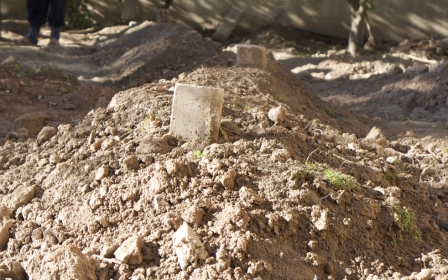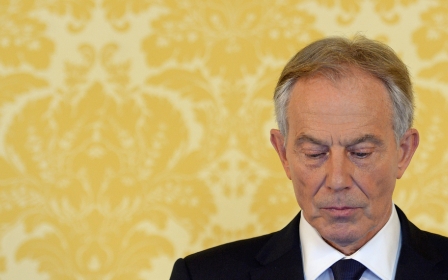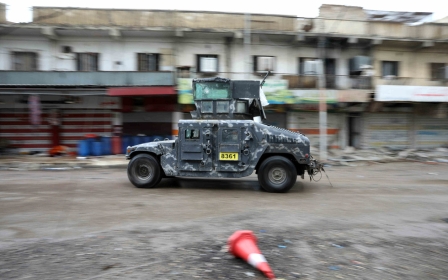Iraqi forces treated for chemical exposure. US says
Several Iraqi troops required medical treatment after a chemical attack by the Islamic State (IS) group over the weekend, a US official said on Wednesday.
The attack on Saturday saw IS launch a low-level chemical agent at the Iraqis in western Mosul as they worked alongside US and Australian military advisers, Major General Joseph Martin said.
"The Iraqi security forces ... were in the vicinity of one of the strikes. They were taken back to the appropriate level of medical care to make sure that they were all right," said Martin, who is the commanding general for the US-led coalition's land component.
Martin said the agent was being tested, adding there was no confirmation that the Australians and Americans were exposed.
"Nobody's died...and the good news is that nobody has been impacted significantly by this," the general said.
IS has periodically carried out attacks using chemical weapons, but both the toll and the impact on military operations has been minimal and the militants' bombs and bullets are far deadlier.
Martin said all forward-deployed troops have the "appropriate equipment" to deal with chemical threats.
The chemical was delivered by "indirect fire," which means by a mortar or shell of some sort.
Iraqi forces are fighting to recapture west Mosul from IS after retaking the eastern side earlier this year, while soldiers and pro-government paramilitaries are also operating west of the city as part of the operation.
The militant group overran large areas north and west of Iraq in 2014, but Iraqi forces backed by US-led air strikes have since regained much of the territory they lost.
New MEE newsletter: Jerusalem Dispatch
Sign up to get the latest insights and analysis on Israel-Palestine, alongside Turkey Unpacked and other MEE newsletters
Middle East Eye delivers independent and unrivalled coverage and analysis of the Middle East, North Africa and beyond. To learn more about republishing this content and the associated fees, please fill out this form. More about MEE can be found here.




